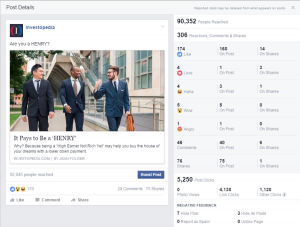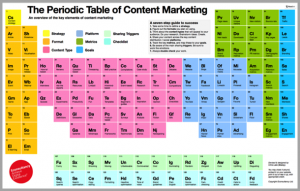Why The Ad Industry Needs Old Curmudgeons
This week, Brian Jacobs announced he is not exactly discontinuing his excellent “Cog Blog,” but he did announce a reduction of its publishing frequency, writing, “I must admit I’m finding it increasingly difficult to write a regular weekly post about things I care little about.”
He goes on to explain, “Today I’m more disappointed and frustrated than proud. The majority of people inhabiting what they refer to as the ad business are nothing to do with advertising. Instead, they’re technocrats and sales people more interested in numbers on a spreadsheet than in the ads themselves.”
Jacobs is ex-Leo Burnett (where he was my boss, and where he worked both sides of the Atlantic), ex-Carat and ex-Universal McCann. He is also ex-Millward Brown. So he knows the industry pretty well.
And now we will hear less from him, which is a real shame. Brian has steadfastly supported better creative, better understanding of how advertising works, better integration across all advertising and marketing roles, better accountability from agencies and the marketing industrial complex as a whole, and – ultimately – a better industry where people feel proud and inspired to be part of it.
We need critical voices like his. We need voices that can remind us of what is important in our industry. We need voices that cannot just remind us, but explain to us what some of the things are we have lost over time. And why that matters.
Brian is by no means an old curmudgeon. He does not constantly proclaim that “everything used to be better.” He has always been a critical analyst. The things he cared for when he was my boss still are the things he cares for today. And he always has ideas on how to address them, make them better.
Before this begins to sound like a eulogy, I better change direction.
My point is this: our industry is youth-focused, progress-obsessed, and new-fangled trend-distorted (if “Threads” or “AI” was not in one of your communications this week, you have failed, obviously). This focus is mostly a good thing, but it often is just noise.
It is estimated that the average consumer is exposed to between 6,000 and 10,000 commercial messages per day. According to Marketing Week, “57.5% of marketers say they have increased their focus on short-term marketing over the past 12 months.”
Their role is no longer truly “marketing” but “marketing communications,” in charge of figuring out how to drive short-term results through messaging. The focus on the “now” coupled with agencies and platforms focused on margin and revenue has brought us to what Brian means when he says that we are no longer focused on advertising. We are no longer focused on what messaging can do for a brand, but rather what a touch point can do in terms of delivery vs. cost.
Now don’t get me wrong. Cost and efficiency of delivery always was important. And many advertisers care (worry?) a great deal about the impact of their message, as well. But it seems what has been lost is a collective desire to try and understand how “it” works, especially when thinking about building and nurturing brands.
David Ogilvy famously said “The objective of advertising is to sell,” which is true. But we sell brands and the consumers’ perception thereof. And to remind us of that we need people like Brian Jacobs. I will happily take his thoughts, even if they appear with less regularity.

(7)
Report Post






